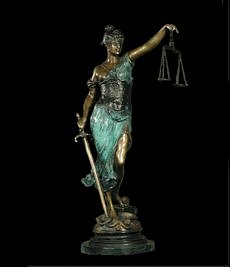Citations to Decisions
In HyperLaw v. West Publishing VI (Appeal-Text), 158 F.3d 674, 48 U.S.P.Q. (BNA) 1560 (2d Cir. 1998) the Court of Appeals stated the following with regard to West's claims of copyright in the text of their reporters:
The district court found that the elements of the West case reports for which West seeks copyright protection lack sufficient originality or creativity to be protectable--whether considered separately or together. * * * * Our decision in this case does not mean that an editor seeking to create the most accurate edition of another work never exercises creativity. As West argues, our [prior] decisions establish a low threshold of creativity, even in works involving selection from among facts. But those cases involved the exercise of judgments more evaluative and creative than West exercises in the four elements of the case reports that HyperLaw intends to copy.
For an exhaustive description of what West claimed as its "authorship" and an analysis of the law related to those claims, it is useful to read both HyperLaw's Opposition Brief and West's Petition for Re-Hearing En Banc filed after its loss.
In the companion decision, HyperLaw v. West Publishing V (Appeal-Citation), 158 F.3d 693; 1998 U.S. App. LEXIS 28024 (2d Cir. 1998) that same Court held that West's page numbering (star pagination) and first page citations (pinpoint cites) were equally devoid of any basis for copyright.
Because the internal pagination of West's case reporters does not entail even a modicum of creativity, the volume and page numbers are not original components of West's compilations and are not themselves protected by West's compilation copyright. * * * * Because the volume and page numbers are unprotected features of West's compilation process, they may be copied without infringing West's copyright. However, West proffers an alternative argument based on the fact (which West has plausibly demonstrated) that plaintiffs have inserted or will insert all of West's volume and page numbers for certain case reporters. West's alternative argument is that even though the page numbering is not (by itself) a protectable element of West's compilation, (i) plaintiffs' star pagination to West's case reporters embeds West's arrangement of cases in plaintiffs' CD-ROM discs, thereby allowing a user to perceive West's protected arrangement through the plaintiffs' file-retrieval programs, and (ii) that under the Copyright Act's definition of "copies," 17 U.S.C. § 101, a [**14] work that allows the perception of a protectable element of a compilation through the aid of a machine amounts to a copy of the compilation. We reject this argument for two separate reasons.
In expressly dismissing the 8th Circuit’s pre-Feist decisions in West Publishing Co. and Oasis as controlling, the Court stated
The Eighth Circuit in West Publishing Co. adduces no authority for protecting pagination as a "reflection" of arrangement, and does not explain how the insertion of star pagination creates a "copy" featuring an arrangement of cases substantially similar to West's--rather than a dissimilar arrangement that simply references the location of text in West's case reporters and incidentally simplifies the task of someone who wants to reproduce West's arrangement of cases. It is true that star pagination enables users to locate (as closely as is useful) a piece of text within the West volume. But this location [**36] does not result in any proximate way from West's original arrangement of cases (or any other exercise of original creation) and may be lawfully copied.
As the federal trial judge who heard both issues (Martin) commented,
Judicial opinions are a highly sought-after commodity in the legal, literary, and news markets. Hyperlaw's action in this case served the public good because West was maintaining a monopoly over the market for judicial opinions based on a tenuous copyright claim. West was not the author of an original work seeking only to prevent another from making fair use of a portion of a work it had authored. West was attempting to use the fact that it had made inconsequential modifications to judicial opinions to maintain a monopoly in the publication of those opinions. Thus, rather than invoking the Copyright Act as a shield to protect legitimate creative work, West used it as a sword to perpetuate a monopoly over important government works.
* * * *
When David vanquished Goliath, the Israelites rewarded him by making him their King. While Hyperlaw's vanquishing of West's monopoly over judicial opinions may be far less impressive, all it asks for its efforts is that it be reimbursed for the substantial legal fees West forced it to incur in order to vindicate the public's right of access to judicial opinions. It prevailed against an adversary that did all that it could to make this litigation as expensive as possible, no doubt hoping that a small company such as Hyperlaw would not stay the course. In these circumstances, the court continues to be of the view that Hyperlaw is entitled to an award of the entirety of its attorneys' fees.
HyperLaw persisted -- in what that same judge repeatedly referred to as “litigation which threatened to leave whole forests bare because of the size and number of pleadings.”
MR. HARTMANN: Your Honor, I would like to call Ms. Donna Bergsgaard as our first witness please.
DONNA BERGSGAARD, called as a witness by the Plaintiff, having been duly sworn, testified as follows:
DIRECT EXAMINATION BY MR. HARTMANN:
MR. HARTMANN: Your Honor, we prepared binders of 18 exhibits which your Honor has. May I approach the witness? Ms. Bergsgaard, I am providing you with two binders, one of them labeled Plaintiff Hyperlaw's Trial Exhibits 1 through 7 and the second is --
THE COURT: It looks like another case in which I should have required the filing of an environmental impact statement. | 